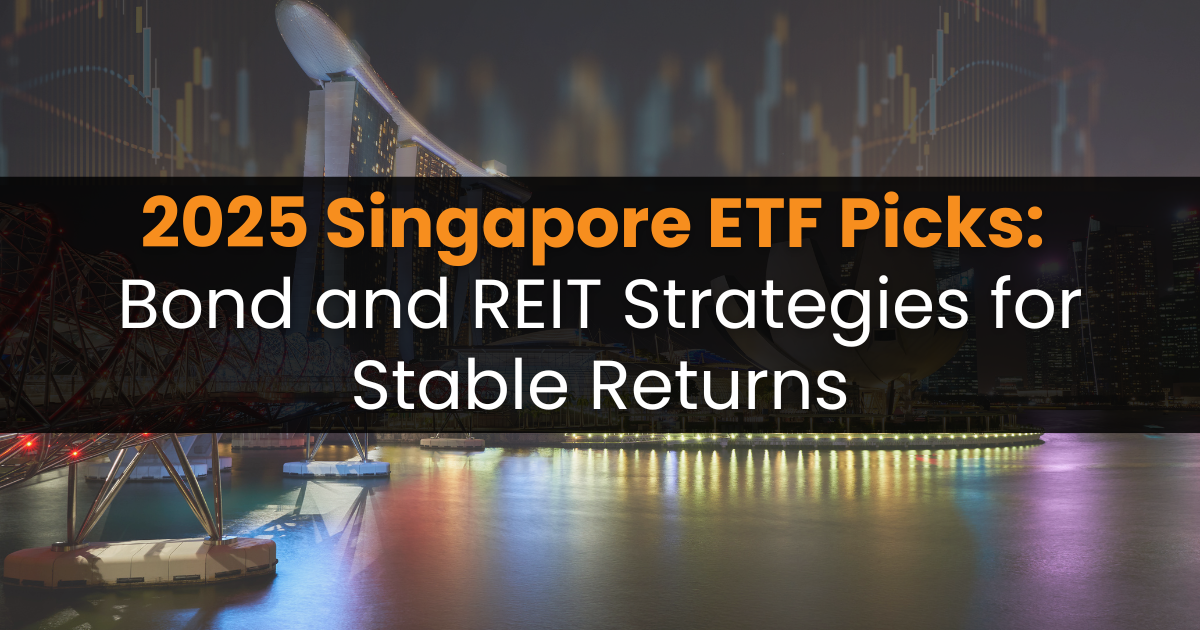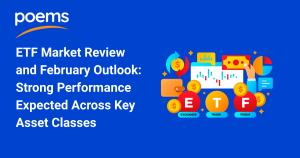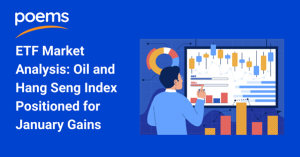2025 Singapore ETF Picks: Bond and REIT Strategies for Stable Returns April 23, 2025

Introduction: Think of This as Your Investment “Recipe Book”
Imagine you’re learning to cook. You could toss random ingredients into a pot and hope for the best—or you could follow a recipe. For new investors, Exchange-Traded Funds (ETFs) are like pre-mixed recipe kits: they bundle diverse investments into one simple package. In Singapore’s 2025 market, where economic growth is steady but sprinkled with risks such as trade tensions and inflation, ETFs offer a way to invest without needing a Michelin-star chef’s skills. Let’s break down why bonds and REITs are the “salt and pepper” of your portfolio this year—reliable, essential, and surprisingly versatile.
1. Singapore’s 2025 Economy: The Slow-and-Steady Tortoise Wins
Think of Singapore’s economy as a hybrid car. It’s not breaking speed records (1-3% GDP growth), but it’s fuel-efficient, reliable, and built to handle bumpy roads (like potential US tariffs). Inflation? It’s simmering like a slow cooker at 1.5-2.5%, not a pressure cooker.
Why It Matters: While trade risks linger (thanks to global politics), Singapore’s secret sauce is adaptability. Factories and tech services are revving up, but tariffs could reroute some growth.
2. ETFs in 2025: Bonds and REITs as Core Portfolio Components
Picture ETFs as sports teams. The SPDR Straits Times Index ETF is the MVP star player, scoring over 29% for 1-year return (as of 14 April 2025). But the real crowd-pleasers? The Nikko AM Bond ETF (your steady goalie with 2.5% returns) and the Lion-Phillip S-REIT ETF (the defender handing you 6% dividends).
Why It Matters: Bond ETFs offer relatively low-risk exposure, similar to fixed deposits but with higher potential returns. Meanwhile, REIT ETFs provide a steady stream of dividend income through exposure to commercial properties such as offices, retail spaces, and logistics centres – making them valuable tools for portfolio diversification.
3. Interest Rates: A Tailwind for Bonds and REITs
The Monetary Authority of Singapore (MAS) has eased its S$NEER policy stance, contributing to a lower interest rate environment. With global central banks, including the U.S. Federal Reserve, signalling potential rate cuts, borrowing costs are expected to decline further.
Why It Matters: Lower interest rates typically boost bond prices and enable REITs to refinance debt at more favourable terms, enhancing returns for investors. Against this backdrop, Singapore’s bond and REIT ETFs present attractive opportunities for income generation and capital stability.
4. New ETFs: Expanding the Dividend Buffet
Singapore’s ETF landscape continues to diversify with new offerings. The Lion-China Merchants Dividend ETF, for instance, introduces a broader range of dividend-focused stocks, expanding investor options beyond traditional REITs and bank names.
Why This Matters:
Greater variety allows investors to build more resilient, income-focused portfolios. Dividend ETFs, with their regular payout structures, offer a reliable stream of income, particularly attractive in an environment of moderated growth and market volatility.
Food for Thought:
Could dividends become the preferred financial “comfort food” for the next generation of investors?
Your 2025 Game Plan: Stability Meets Opportunity
The Playbook:
- Bond ETFs is considered as your portfolio’s safety net. The Nikko AM SGD Investment Grade Corporate Bond ETF offers steady, predictable returns, ideal for risk management and capital preservation.
- REIT ETFs are your income generator. The Lion-Phillip S-REIT ETF, with its 6% yield, provides regular cash flow, enhancing your overall returns without sacrificing liquidity.
Conclusion: The Art of Balancing Your Investment “Diet”
Investing need not feel like solving a complex puzzle. Instead, think of it as assembling a well-balanced portfolio – similar to curating a bento box – blending stability, income, and growth according to your risk appetite and financial goals.
Singapore’s ETF landscape in 2025 offers opportunities that are not merely about chasing returns, but about sustaining resilience in uncertain times. Bonds and REITs remain the essential components – reliable, steady, and critical to long-term financial health.
Final Food for Thought: If your portfolio were a business, would it simply survive a recession – or continue to thrive?
Disclaimer
These commentaries are intended for general circulation and do not have regard to the specific investment objectives, financial situation and particular needs of any person. Accordingly, no warranty whatsoever is given and no liability whatsoever is accepted for any loss arising whether directly or indirectly as a result of any person acting based on this information. You should seek advice from a financial adviser regarding the suitability of any investment product(s) mentioned herein, taking into account your specific investment objectives, financial situation or particular needs, before making a commitment to invest in such products.
Opinions expressed in these commentaries are subject to change without notice. Investments are subject to investment risks including the possible loss of the principal amount invested. The value of units in any fund and the income from them may fall as well as rise. Past performance figures as well as any projection or forecast used in these commentaries are not necessarily indicative of future or likely performance.
Phillip Securities Pte Ltd (PSPL), its directors, connected persons or employees may from time to time have an interest in the financial instruments mentioned in these commentaries.
The information contained in these commentaries has been obtained from public sources which PSPL has no reason to believe are unreliable and any analysis, forecasts, projections, expectations and opinions (collectively the “Research”) contained in these commentaries are based on such information and are expressions of belief only. PSPL has not verified this information and no representation or warranty, express or implied, is made that such information or Research is accurate, complete or verified or should be relied upon as such. Any such information or Research contained in these commentaries are subject to change, and PSPL shall not have any responsibility to maintain the information or Research made available or to supply any corrections, updates or releases in connection therewith. In no event will PSPL be liable for any special, indirect, incidental or consequential damages which may be incurred from the use of the information or Research made available, even if it has been advised of the possibility of such damages. The companies and their employees mentioned in these commentaries cannot be held liable for any errors, inaccuracies and/or omissions howsoever caused. Any opinion or advice herein is made on a general basis and is subject to change without notice. The information provided in these commentaries may contain optimistic statements regarding future events or future financial performance of countries, markets or companies. You must make your own financial assessment of the relevance, accuracy and adequacy of the information provided in these commentaries.
Views and any strategies described in these commentaries may not be suitable for all investors. Opinions expressed herein may differ from the opinions expressed by other units of PSPL or its connected persons and associates. Any reference to or discussion of investment products or commodities in these commentaries is purely for illustrative purposes only and must not be construed as a recommendation, an offer or solicitation for the subscription, purchase or sale of the investment products or commodities mentioned.
This advertisement has not been reviewed by the Monetary Authority of Singapore.
About the author
Mr Teo Huan Zi
Mr Teo Huan Zi graduated from Nanyang Technological University (NTU) in 2014 with a Bachelor’s degree in Business, majoring in Banking and Finance.
He currently serves as a dealing manager with a team of more than 10 equity specialists. Additionally, he frequently conducts seminars and webinars to empower his clients with financial and investment knowledge, including fundamental analysis and technical analysis.

 Gold ETFs for Singapore Retail Investors: Diversification and Inflation Protection
Gold ETFs for Singapore Retail Investors: Diversification and Inflation Protection  ETF Market Review: February Outlook Signals Strong Performance
ETF Market Review: February Outlook Signals Strong Performance  ETF Market Analysis: Oil & Hang Seng Set for January Gains
ETF Market Analysis: Oil & Hang Seng Set for January Gains  Buffer ETFs — What Are They and How Do They Work?
Buffer ETFs — What Are They and How Do They Work? 






